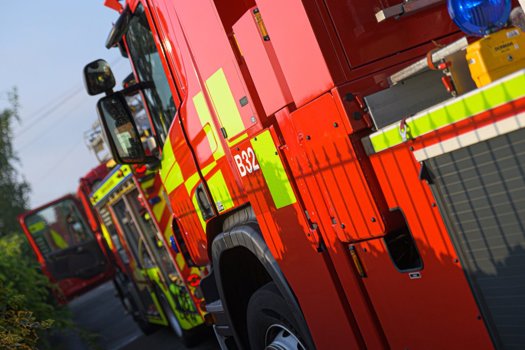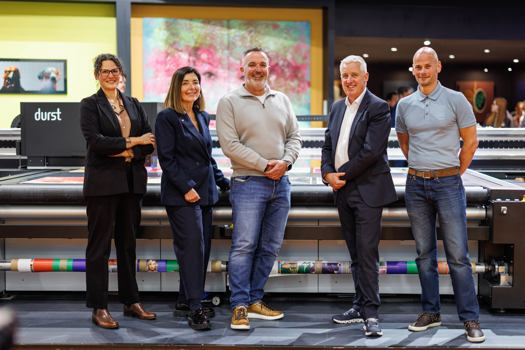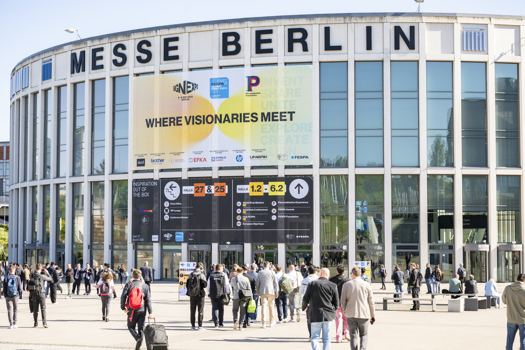In his address to the nation on the evening of 23 March 2020, and with the NHS in danger of being overwhelmed, Johnson called for a huge national effort to halt the spread of the virus.
He told people they must stay at home except for limited activities, including travelling to and from work if it was not possible to work from home, in order to “protect the NHS and save lives”.
Following a turbulent year of back and forth closing and reopening of vast swathes of the economy, this time last year England was beginning to creep out of its third national lockdown, which had started on 6 January 2021.
The government had just started the country along a “roadmap out of lockdown” that saw most restrictions lifted in the summer, although some were reintroduced at the end of 2021 as the Omicron wave took hold.
Speaking to Printweek this week, BPIF CEO Charles Jarrold said: “It’s been such an unusual two years that it’s almost easy to forget how seismic the lockdown was, and the sense of shock across the country. Two years on, we can look back on that awful period with some sense of pride about how the sector reacted, and, how it’s emerged.
“The sector reacted to the PPE challenges for example, and collectively used its entrepreneurial energies to adapt, with government support meaning that business failures were really quite rare. Now, demand has come back strongly – while it dropped by nearly 20% at peak lockdown, it’s recovered much of that, and that recovery continues.
"Businesses face a different set of challenges right now, but, there is a sense of having moved on from the pandemic properly. I’d hesitate to say there are many positives – it’s probably accelerated change by reducing inertia – we’ve all had to change and adapt, and that’s not a bad thing.
“It’s also reconnected many businesses to some of the things that really matter – working closely with staff, valuing customer and supplier relationships, and created a greater sense of the value of teamwork and collaboration across the sector. That said, let’s hope we really have seen the back of Covid."
Brendan Perring, general manager at the IPIA, added: “About 20% of the companies in our industry were in the right place at the right time [at the start of the pandemic] – maybe they had council contracts, pharmaceutical contracts, or local schools’ contracts. Anything connected to Covid meant that they did well.
“Probably about 80% of the industry took a big hit one way or the other on a sliding scale, and those that managed to come through have all had to work very hard to diversify what they do and to be a lot leaner and fitter – even more than they thought was possible.
“I think what we have as an industry now is that print volumes overall seem to have only climbed back up to about 80-85% of the pre-Covid level and I think there was a real hope they would have gone back up to 100%. So in the main it seems the industry has lost some ground overall, but I think it will come back in the longer term as time goes on and events come back, more events come on stream, and new companies come back to the fore. We will get back up to where we were, but it will just take longer than we anticipated.”
He added: “One of the positives that has resulted from the pandemic is that diversification issue. A lot of print service providers – even before Covid – needed to move forwards e-commerce, they needed to diversify into areas like large-format print, luxury packaging, and becoming design and marketing agencies for their customers that were then able to control and produce the print as well.
“I think that was already happening before Covid, but it really forced the issue with a lot of print businesses who then had to have an e-commerce strategy because they physically couldn’t interact with their customers in a normal way. Their heartlands of traditional commercial print got hammered so it forced diversification.
“So we’ve now got an industry that is broader in terms of what it can produce, and the relationship between printer and customer now is more consultative overall.”
Printweek Poll
Print bosses have also shared their thoughts with Printweek on how their own businesses are looking two years on from the first lockdown, and reflected on any positives that have resulted from the pandemic.
Alison Branch, managing director, Park Communications
“The last two years have been exceptionally challenging for everyone – companies and individuals. The changed circumstances necessitated that we reviewed every area of the business to see how we could be more effective and more efficient. Very sadly, as part of this process, we had to say goodbye to highly regarded team members, but we now have a much more focused and streamlined business with the reserves to deal with anything that the war and supply chain problems bring to the industry.
"Park's business dipped about 30% during the worst of Covid, but has largely bounced back, and 2022 looks set to be a strong year for growth. A few clients decided to stop printing to cut costs – but we also won a lot of new business.
"Covid accelerated a trend, which existed before the pandemic, of publishers and brands re-evaluating the role of print in digital marketing contexts. We've had a number of first-time orders from SMEs who have already grown successfully online and are seeking to carve out new gains with print marketing. We’ve also seen companies which were not early adopters of digital marketing – art galleries for instance – now looking closely at ways to incorporate print and digital, including through the use of QR codes.
"Interest in sustainable printing is as strong as ever. We took the opportunity of some downtime during lockdown to continue our work educating the industry about sustainable printing through content publishing. As priorities inevitably shifted during Covid, the environment remained top of the agenda for Park and our clients alike – and so these efforts have continued to reward the business. They were a large part of the reason we won Printweek Environmental Company of the Year – SME, and sustainability continues to feature in the majority of our conversations with new and existing customers."
"Today, Park is a leaner, stronger business thanks to the tremendous loyalty, flexibility, and commitment shown by everyone in the business through Covid and now through the current supply challenges. Team working was elevated to a much higher level through Covid, both within and between departments – an essential element in making our work more efficient, and more enjoyable.”
Robert Cross, director, Micropress (Printweek Awards Company of the Year winner)
"Micropress has always believed in re-investment and in the dark times of Covid we remained determined and kept our investment programme up. I think if anything Covid made us question things more than ever. We have introduced a lot of technology into the business with a drive in becoming more efficient to try and keep pricing low, maintain margin whilst costs are increasing all the time.
“This has not been an easy task and I think arguably without the Covid crisis we would have been more comfortable, and it has in fact stimulated investment from us. It’s been a bumpy road, but the business is now performing very well again and, on the whole, we are back up to pre-pandemic levels. I have to say though it is becoming an increasing challenge again with costs that just keep going up and we are certainly looking forward to the day when prices settle down."
Zoe Deadman, managing director, KCS Print
“Business has been unpredictable and hasn’t followed any of the pre pandemic patterns. Changes that we thought would take five years to happen have instead come about in one to two years. The biggest issue we are currently facing is rising costs in every conceivable direction. We are also very conscious of the ‘Cost of Living’ increases that are piling up for our team. It is creating really unhelpful churn in the market as we are forced to pass on these multiple cost increases having absorbed them as much as possible over the past few months.
“On the plus side, our investment plans have gathered pace and we are adding new capabilities to our plant list. This is aimed at new growing sectors of the print industry and will increase further our skills within the specialist labelling sector in the most sustainable way possible. I think Covid has shown us all the pitfalls of living out of kilter with the natural world. As part of our strategy to ‘Grow back stronger’ we will be building on the longstanding KCS commitment to the environment by putting nature, recyclability and the use of circular materials at the centre of KCS Print’s future direction.
“The Covid crisis forced us to review every area of our business. It also taught us to be more flexible and inventive. More of our staff have now been cross trained in other areas of the business and we have a real feeling of cohesiveness amongst the team. There is also a confidence amongst the management team that if we are able to survive the trials of Brexit and then Covid and come out in good shape then we can take on most things the world throws at us!
“With our new investment strategy the team are all really excited to see how the next five years develop. The environment, sustainability and the circular potential of the raw materials that we use will be at the core of everything we do as we keep growing.”
Lance Hill, managing director, Eight Days a Week Print Solutions (double Printweek Awards winner)
"We are in good shape. There is no doubt the pandemic took everyone by surprise and there was some serious concern at the beginning, and consultation with the ‘business continuity plan’ to ensure we were ready. In turn that made us evaluate the business, from top to bottom, which was a good sense check if nothing else.
"Regarding what positives resulted from the pandemic, this is where I feel some guilt. A case of right place and right time, which when your primary sector is pharmaceutical and healthcare, we actually grew through the crisis. However, we did also grow our underlying position which I am convinced is because we were playing from a position of strength and confidence. Our new business wins were incredible once things started to pick up, but I really do feel for the printers who were in the sectors that got hit the hardest."
Robin Sumner, managing director, Romax
“There is no doubt that the pandemic was hard hitting, but as a resilient and established business we have managed to ride out the storm and have reset for the future.
“The positives are many, from the resilience of our staff, the ability to streamline our offering and provide nimble new services; in many ways to relaunch the business with a new focus. We used the time to create new services, invest in staff training, create a new website and provide a clearer focus on what our clients need in an ever-evolving business environment.”










